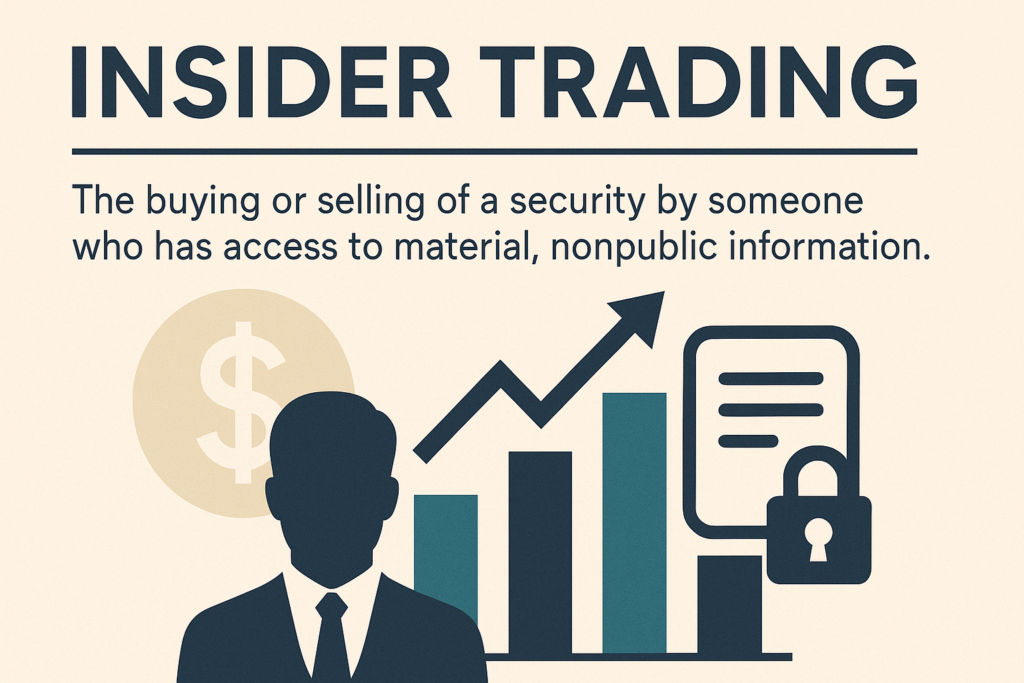Insider trading refers to the buying or selling of a publicly traded company’s stock by someone who has non-public, material information about that company. This act can be legal or illegal, depending on when the trade occurs and whether the information is disclosed to the public.
✅ Legal vs. Illegal Insider Trading
Legal insider trading happens all the time. For example, corporate executives and directors often buy or sell shares in their own company—but they must report those trades to the U.S. Securities and Exchange Commission (SEC), and the transactions are disclosed to the public.
Illegal insider trading occurs when someone trades stocks based on confidential information that hasn’t been released to the market. This gives them an unfair advantage over regular investors.
📌 Example:
An employee at a pharmaceutical company learns that a new drug will fail its clinical trials. If they sell their stock before the news is public, that’s illegal insider trading.
💼 Who Can Be Involved?
Insider trading is not limited to CEOs or board members. It can involve:
- Employees
- Lawyers
- Accountants
- Consultants
- Family members or friends of insiders who receive a “tip”
Even outsiders (like hedge fund managers) can be guilty if they knowingly act on inside information.
🔍 How Is It Tracked?
Regulators like the SEC and FINRA use advanced surveillance systems to track suspicious trades. Whistleblowers and anonymous tips also play a role. High-profile investigations have led to convictions of well-known executives and traders.
⚖️ Penalties
Illegal insider trading can lead to:
- Fines up to $5 million
- Prison sentences of up to 20 years
- Civil penalties and trading bans
Even accidental insider trading can result in severe consequences if procedures aren’t followed.
📊 Why It Matters to the Market
Insider trading erodes trust in financial markets. When investors believe the game is rigged, they’re less likely to participate. Transparency and fairness are the backbone of healthy, functioning capital markets.
💡 Takeaway for Investors
While insider trading can seem like a high-stakes game for elites, understanding how it works helps every investor protect themselves and make informed decisions. You can even monitor legal insider activity (via Form 4 filings) to spot trends in how executives feel about their companies.







